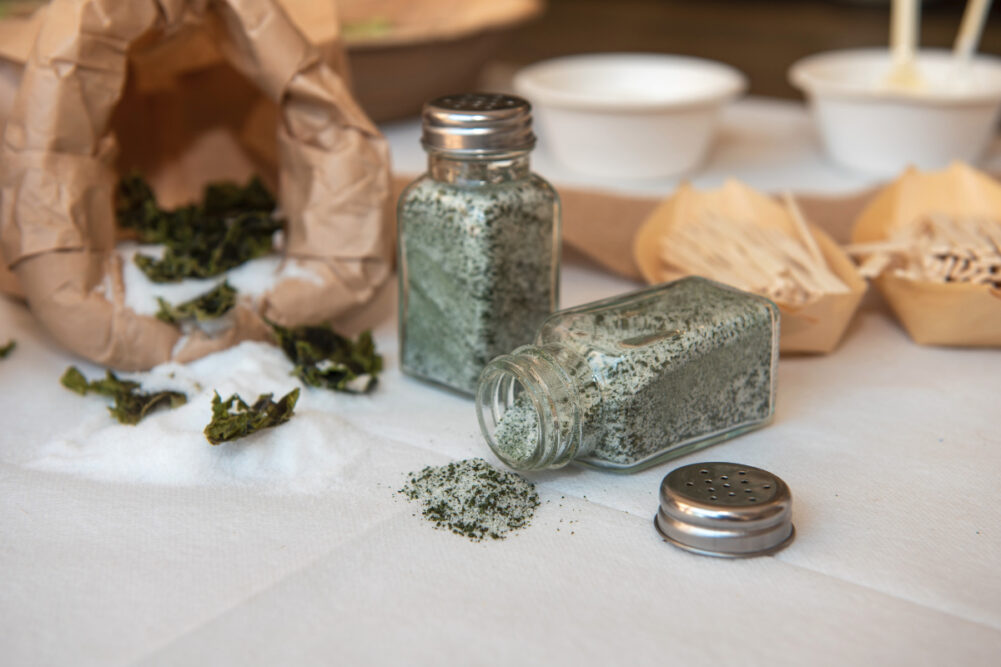ATLIT, ISRAEL – Salt of the Earth Ltd. and Tel-Hai College Institute in Israel have formed a partnership to find ways to reduce sodium and salt in food products. Projects so far have involved seaweed and chickpeas.
Ofir Benjamin, PhD, lecturer and researcher at Tel-Hai College, devised the academic initiative, which was supported by Roee Weiser, vice president of business development for Israeli-based Salt of the Earth. Rakefet Rosenblatt, R&D technologist and application manager for Salt of the Earth, guided students.
Seaweed enriched the total mineral content of salt in the first project. Students sought to neutralize the strong iodine flavor in seaweed and minimize its impact on color. They developed salt with two different species of seaweed that underwent a process of oil treatment and ethanol extraction.
In the second project students developed a savory vegan snack by using chickpea flour and other starches. They sought to attain a crunchy texture while meeting typical flavor expectations and eliminating off-flavors from the chickpeas. Salt of the Earth’s Mediterranean Umami Bold, a plant-based system for flavor enhancement and sodium reduction, was incorporated into the application to reduce salt levels. This project won a bronze medal at the Tel-Hai College competition.
“This collaboration is a great opportunity for us to engage with students who have the desire and creativity to come up with great ideas,” Mr. Weiser said. “The goal is to accelerate product innovation and highlight new challenges in producing better-for-you foods.”





